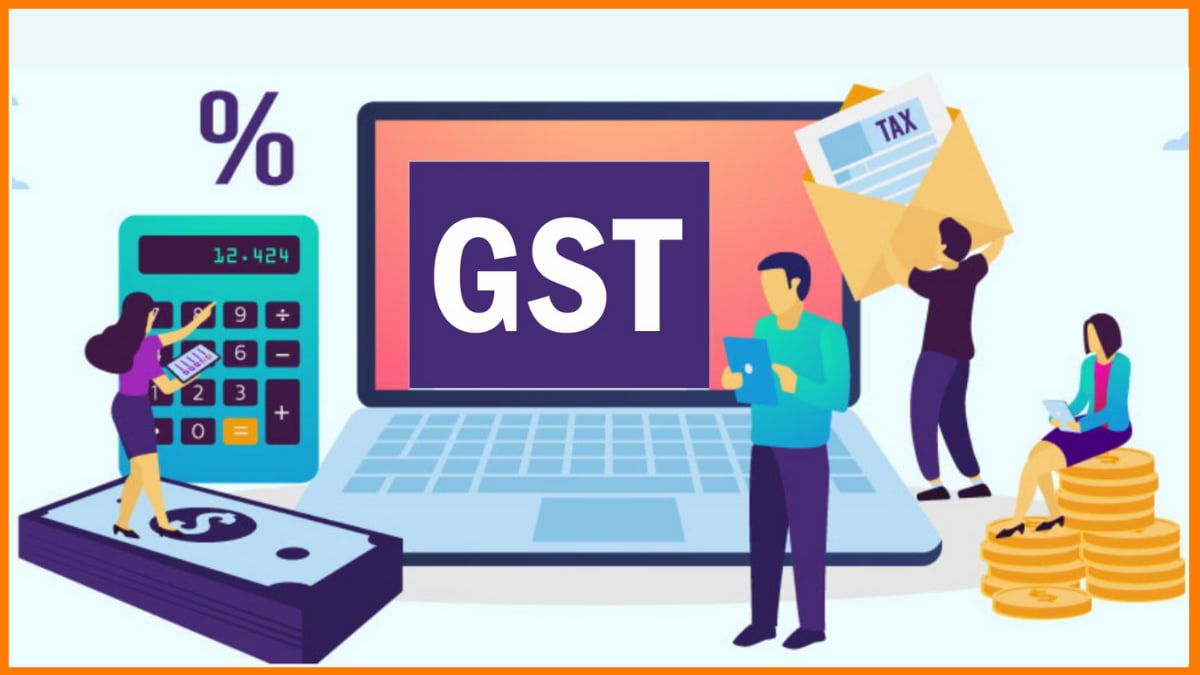
We are passionate experienced team of professional

Get Your
Overviews
With a view to abolish several other indirect taxes and to create a single taxation system, GST was introduced in India. Also, GST helps in the ease of collection and to enhance the efficiency of the process.
GST Registration is required for the businesses whose turnover gets over Rs. 40 lakhs* for sale of goods (Rs 20 lakhs for North Eastern – All hilly states for sale of goods). There has been no change in the threshold limits for service providers. Persons providing services need to register if their aggregate turnover exceeds Rs.20 lakh (for normal category states) and Rs.10 lakh (for special category states)
Documents of GST Registration of Company
- The Certificate of Incorporation issued by the Registrar of Companies
- Board Resolution
- Bank Details of Company and KYC of its directors and the digital signature is required.
- List of Documents and Formats
Document for GST Registration of LLP / Partnership
- Firm Registration Certificate
- Firm Agreement
- The address proof and Bank details of the firm and KYC documents of all the designated partners of the LLP or all partners of the firm plus the digital signature.
- List of Documents and Formats
Document for GST Registration of Proprietorship / Individual
- Obtaining the GST registration is easier.
- There is no need to get the digital signature
- Registration can be done based on Aadhar based OTP.
- Essential KYC documents are required
Benefits
Simplifies Taxation Services
GST has combined a number of indirect taxes under one umbrella and integrated the Indian market.
Reduction In Costs Of Products & Services
With the introduction of GST, the cascading effect of a series of VATs and taxes has been erased which has resulted in the reduction of cost of goods and services.
Helps In Avoiding Lengthy Taxation Services
GST Registration helps the small businesses in avoiding the lengthy taxation services. As the service providers with a turnover of less than 20 lakhs and goods provider with a turnover of less than 40 lakhs are exempt from paying the GST.
Aimed At Reducing Corruption And Sales Without Receipts
GST was introduced with an aim of reducing corruption and sales without receipts. Also, it helps in reducing the need for small companies to comply with various indirect taxes.
Uniformity In Taxation Process
GST Registration brings uniformity in the taxation procedure and allows centralized registration. This helps the businesses to file the tax returns every quarter through an online process.
Minimizing Tax Evasion
With the introduction of GST, tax evasion is minimized to a great extent.
Higher Threshold For Registration
Earlier, in the VAT system, any business with a turnover of more than Rs 5 lakh was liable to pay VAT in India. In addition, service tax was exempted for service providers with a turnover of less than Rs 10 lakh. Under GST regime, on the other hand, this threshold has been increased to Rs 20 lakh, which exempts lot of small traders and service providers.
Composition Scheme For Small Businesses
Under GST, small business under turnover of Rs 20 to 75 lakh can benefit as it gives an option to lower taxes by using the Composition scheme. This move has brought down the tax and compliance burden on many small businesses.
Simple And Easy Online Procedure
The complete process of GST (from registration to filing returns) is done online, and it is super simple. This has been advantageous for start-ups mainly, as they do not have to run from pillar to pillars to get diverse registrations such as VAT, excise, & service tax.
Compliances Is Lesser In Number
Previously, there was VAT & service tax, each of which had its own returns & compliances. Under GST, on the other hand, there is just one, unified return to be filed.
Regulations Of Unorganized Sector
In the pre-GST era, it was often observed that certain industries in India like building construction and textile were largely unorganized and unregulated. Under GST, however, there are provisions for online compliances and payments, and for availing of input credit only when the supplier has accepted the amount. This has brought in accountability and regulation to these industries.
How To Register
Step-1:Collecting information and documents
1st we will collect all the documents and information about your business to decide whether to go for Composition Scheme or Normal Scheme.
Step-2:Preparing documents
Next we will prepare all the documents necessary for GST Registration like Non Objection Certificate in case of rented premises, compressing various images and documents, etc.
Step-3:Selecting the HSN/SCN
Next, we will select the most suitable SAC/HSN codes based on the nature of your business activities. We try to include all HSN/SAC required in case of expansion in near future.
Step-4:Allotment of GSTIN
After obtaining approval from the Department, it will issue GST Registration Certificate, login Id, password of GST Common Portal.
Step-5:Waiting for Approval
After successful submission, GST officers hardly takes 3-4 days to verify the application and granting GSTIN number. If GST Department fails to approve or reject application within 7 days, then it is deemed to be approved.
Step-6:Applying for GST Registration
When we are all set, we will apply for your GST Registration on GST Portal. This whole process hardly takes a day starting from collecting information & documents till applying for GST Registration.

1. What is a GSTIN?
2. Whether Digital Signature is required for GST Registration in India?
3. Can anyone get voluntary GST Registration?
4. When is there a need for multiple GST Registration for a business?
5. What is a Composition Scheme under GST?
6. Who is not eligible for the Composition Scheme under GST Registration in India?
Supplier of non-taxable goods
Manufacturer of Notified Goods
Service providers
E-commerce sellers
Inter-state sellers
7. What are the advantages related to Composition Scheme under GST Registration?
8. What are the disadvantages related to the Composition Scheme under GST Registration?
9. What is ARN under GST Registration in India?
10. What is the HSN Code under GST Registration?
Any Query? We are just a Message away
Clients Say
Testimonials
About our clients
Client-Centric Solutions for Your Financial Success
EzyWayTax provided excellent tax planning and financial advice to optimize a business's financial position.


